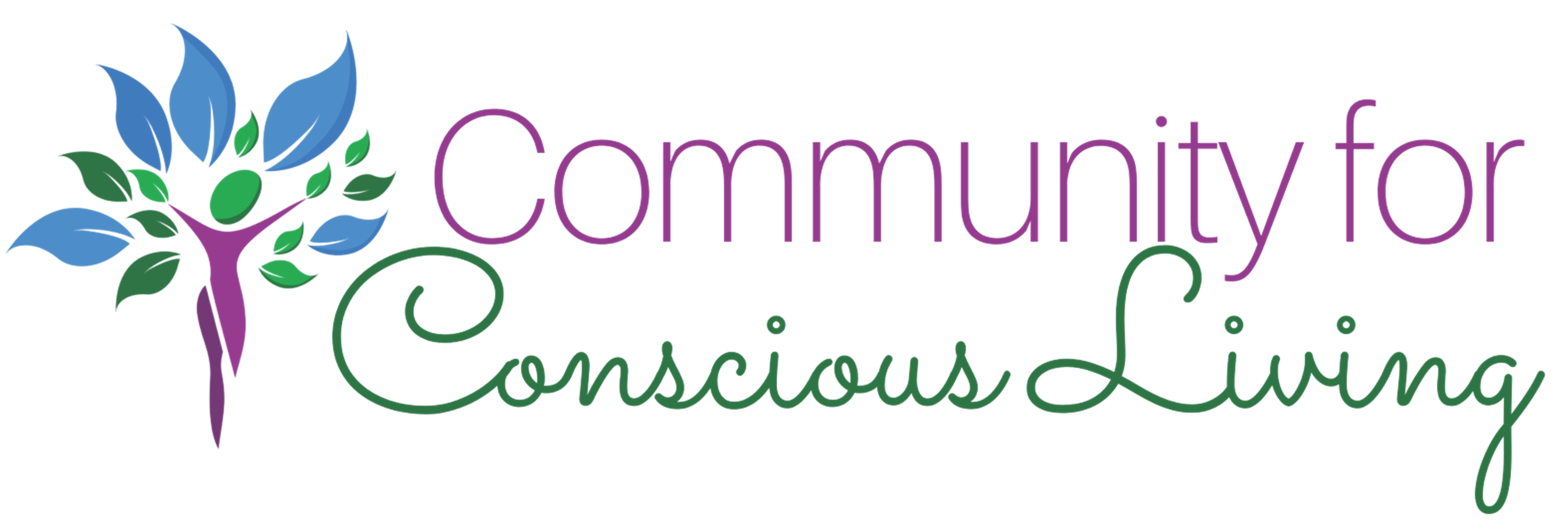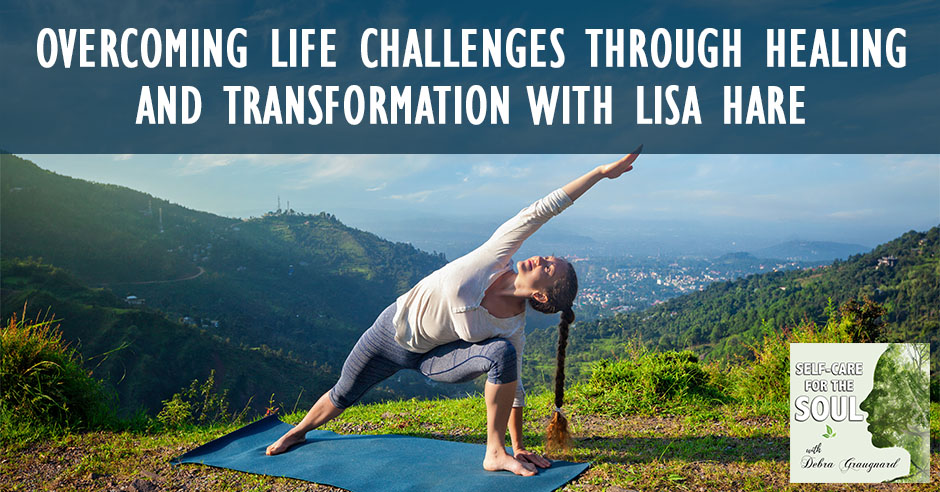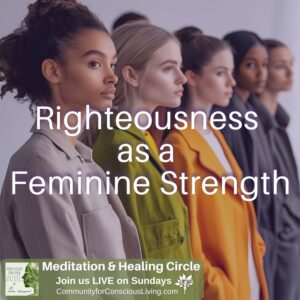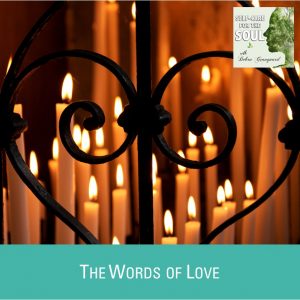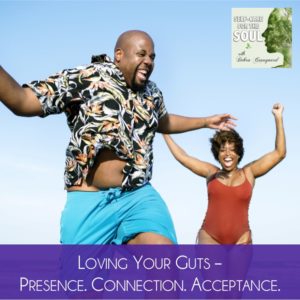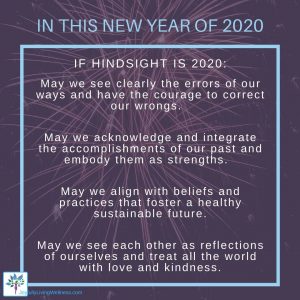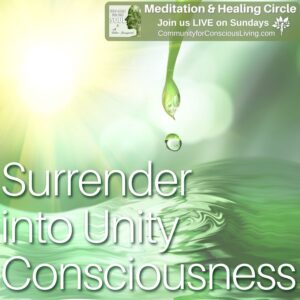Lisa’s story of abuse began when she was ten years old as a family friend gained her trust. At fourteen, when the situation was discovered, she ended up in court. Lisa expresses beautifully what a child goes through. She said, “All I knew of court was Perry Mason from TV. I just knew they were going to make me look like a liar. I really thought I was going to go to jail.” She is now a psychologist, kinesiologist, energy healing practitioner, a trainer, and author with over 25 years of experience in helping others overcome life challenges.
Having a passionate interest in teaching the techniques that supported her own growth, Lisa has created a number of training courses that support others in their journeys of healing and transformation. Lisa tells a beautiful story of how this abuse rippled into all the relationships in her life, and how she found healing for herself and her relationships.
—
This interview is from the While We Were Silent series. Our guest is a dear friend of mine, the amazing and beautiful, Lisa Hare of Melbourne, Australia. Lisa’s story of abuse began when she was ten years old, as a family member gained her trust. At fourteen when the situation was discovered, she ended up in court. Lisa expresses beautifully what a child goes through. She said, “All I knew of court was Perry Mason from TV. I knew they were going to make me look like a liar and I thought I was going to go to jail.”
Lisa tells a beautiful story of how this situation of abuse rippled into all of the relationships in her life and how she eventually found healing for herself and for her relationships. She’s got her beautiful Australian accent, a combination of that and her pure spirit, her inner beauty that comes through. She’s got many quotes that will resonate with your heart in this. It’s worth to take the time to read this interview with Lisa.
Listen to the podcast here:
Overcoming Life Challenges Through Healing And Transformation with Lisa Hare
Welcome, Lisa.
Thanks, Debra. It’s wonderful to be with you.
I am honored and excited that you have chosen to be part of this project.
It’s wonderful to be with all of the people who will be listening to think about this wonderful message going out into the world.
I want to tell our audience a little bit about Lisa. We were in a business building class together and we’ve been in a mastermind together ever since. Every time I talk with Lisa, there’s at some point in the conversation where the floor drops out and you ground into the earth a couple layers deeper. This huge wisdom from on high opens up. She’s got such a beautiful way with her words and such incredible insights. She’s truly amazing. Let me read her bio so you get the fullness of all the many things that she has done and is still doing.
Lisa Hare lives in Melbourne, Australia. She is a psychologist, kinesiologist, energy healing practitioner, a trainer, and author with over 25 years of experience in helping others overcome life challenges of many kinds. Her work as a therapist focuses primarily on relationship issues, life skills, resolving stress, anxiety and depression, drawing mostly on kinesiology, counseling and transpersonal psychology, somatic therapies and spiritual healing techniques. Having a passionate interest in teaching the techniques that supported her own growth, Lisa has created a number of training courses that support others in their journeys of healing and transformation.
She teaches Kinesiology and Chiron Healing in Australia, Taiwan, and Singapore. Lisa is a keen traveler, which has given her valuable insights into many other cultures, including Western Europe, Greece, Turkey, Malaysia, Taiwan, Egypt, Peru, India and the United States. Lisa if you would, start by telling us a little bit more about your story and how it has led you to do all the many beautiful things that you are doing to help many people in the world.
I began working as a computer programmer in the early days of information technology. It kept my mind busy. It gave me wonderful things to explore and I learned a lot about people and management throughout 30 years in IT. The IT industry was booming during those years and it was a wonderful time to be involved in it. I became involved in the New Age movement in ideas in healing techniques in the mid-80s, following the breakdown of my second marriage. It’s like, “How did I end up here? I don’t want to do this again. What went wrong?” As I explored that with the various techniques, I wanted to learn more and more. I began to change and to heal. I began working as health practitioner to help other people with these same questions.
Lisa, you mentioned that you also teach a number of different courses, can you say more about that?
I am the oldest of six children, teaching has always been important, it’s like teaching them to tie their shoelaces and eat their veggies and so on.
I am the youngest of six children so learning from my older siblings has always been a big deal for me.
The funny thing about learning is every time I learn something new I want to go tell people about it. I get excited about new knowledge. As I was reflecting while you were giving that intro, teaching is a way to share people’s growth and journey. The thing that excites me is our journey through life, the spiritual journey. That is why I moved into teaching. I’ve done lots of teaching, developed my own courses in inner harmony body work, women in bloom which is about exploring women’s powers, their issues and so on, whatever they’re dealing with in the now. It’s time to run that one again because the issues that we’re dealing with now at the level we are dealing with them is different to what we’ve ever done before. Celebrating goddess and the Journey to Freedom, which is Leslie Kenton’s book, I facilitate that journey. Bring it on. What’s next?
[Tweet “Teaching is a way to share people’s growth and journey.”]Lisa, tells us through your courses and what you do, what is it that you do to help other people?
Learning and growing has always been a fundamental thing. I’ve been working as a healing practitioner for almost 30 years; mostly using kinesiology, Chiron Healing, and so on. It’s sharing my personal journey into what works for me and how I share that with others and help them in their journey.
You have your own story about abuse. Can you share some of that of what you’ve been through?
My personal experience with abuse was being interfered with, as we called it in those days, by someone who was supposedly a friend of the family. We now understand that predators set themselves up in a position where they can access young children, young people. It happened between the ages of ten and fourteen. The fallout began when he made a move on one of my friends, she told her mother, told my mother and so on. The outcome of all that was a court case to try to convict him based on my evidence. That didn’t work because I was frightened during the court case.
My statement had been made six months before I was fourteen years old. All I knew about court was from Perry Mason. I knew they were going to make me look like a liar. I was afraid I was going to be sent to jail. I was frightened to speak up in court even though I’d said what happened. In a way, it was a waste of time. I remember the look on the man’s wife’s face as she came out, she said, “We won,” and I thought, “You didn’t win, I lost.” It was like I took on the responsibility of not stopping him from doing this to other girls.
Let me clarify, they won, meaning that he was not convicted for what he had done to you, to your friend, and others?
Yes. I was too frightened to speak up in court because I knew that they would try and make me look like a liar. That was 55 years ago. There was no counseling support or support of any kind for myself or my parents. It’s different now. There’s counseling support, there are a lot more support for people who do speak out. It wasn’t that I was afraid to speak out, I was afraid of the consequences. I wasn’t just afraid to speak out; it wasn’t about saying what had happened because I’d already done that.
It was what the court system was going to do to me. That’s probably still there but hopefully there are more support for people. The court experience had a great deal of effect on me at that time. Probably the thing that’s been present with me most is the impact of the relationships with my parents which was totally disrupted by this. To some extent was not healed until many years later, until we could speak about it, and meet on the same level.
The topic at hand is While We Were Silent. There was the period of silence from the time that you were ten to fourteen and then still the silence even during the court case, and then still more silence as you had an inability to talk openly and freely with your parents, your key relationship up until many years later, not to mention your relationship with your other siblings.
Yes, and my friends. It became public to my inner circle. There were attitudes from others that I had to deal with. It was my own attitudes to myself and it’s like, “You’ve done something dreadful and it can’t be fixed,” so you’re a full-on woman and nothing could be done about that. Those are responses that affect all women and all sexual abuse victims, men as well. It’s probably a good vignette for this series that you are putting together.
Can you give more insight into that need to be silent or that tendency to keep things inside and to not want to talk about it, just stay silent?
There are lots of reasons. As a child, you don’t know what to say. When someone touches you on the leg, if you’re a child, you don’t know what might be coming next. You’ve got a child’s perspective. Adults, when they’re talking to children about sexual abuse, they can’t avoid bringing an adult sexual perception or perspective to that. If that had happened to me as a sixteen-year-old or fourteen-year-old when things were discovered, then I would have had some perspective in which to say, “No, that’s wrong. I’m going to tell somebody,” but when it began at that age, I had no understanding. I didn’t know what sex was. We hadn’t had the conversation, my mother and I. I didn’t understand what he was up to.
We’re taught as children not to speak up, not to own up to things we do wrong. We’re not taught that. It’s a survival mechanism. You don’t go, “Mom, I broke that lamp over there.” We pretend it didn’t happen. I think that carries even more into sexual behaviors or sexual experience because we don’t want to get in trouble, so we speak up. I projected that under the court system, because of knowing Perry Mason. What would happen in the court room, the accused and the victim, and what the accuser’s lawyers were going to try to do to me? That’s a major part of it. There are all of the emotions, there’s confusion, there’s anger and shame and all those feelings that come up that go on behind the scenes and under the surface with sexual abuse. There are a lot of reasons.
When that realization hits, there is that shock. There is the part of your body, even if you don’t cognitively know what’s going on, there’s a part of your body that feels an invasion. That has a visceral response that can freeze, and then go into shame and hold all of these things. There are all of the things that we do know, that we are taught or that we learn along the way that get into the mind and start playing all kinds of tricks on us. What’s going to happen if, like Perry Mason that you’re going to get in trouble or you’re going to go to jail. Many things play in the mind.
It happens in children, and yet the trauma response is the trauma response. What’s different is what the mind does with it, but at any age we can fall into some tricky stuff around what we are going to do with what’s happening, what happens to our bodies. If it’s somebody that has influence, power, or authority, there are many things at stake. With that visceral internal response to shame, that feels internally icky. At the visceral level, it’s our body’s way of giving us a signal and telling us that something has happened that is wrong. Then because of everything that we’ve been taught culturally, we do all kinds of crazy things with that. We do think we’re the ones that are bad; we’re the ones that are in trouble. Our culture is really messed up in terms of the way it has blamed women for things that we are a part of.
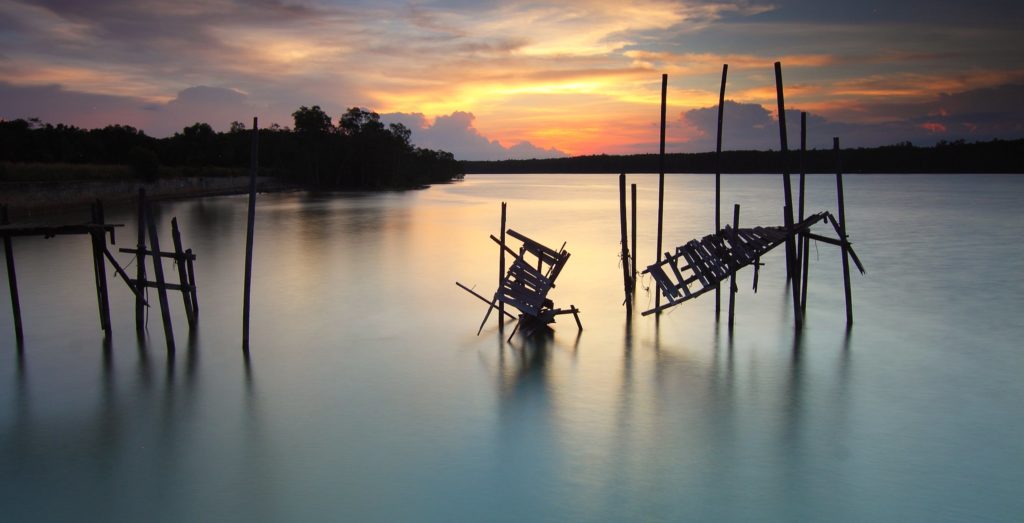
It feels safer not to speak. At the end of the day that’s why we don’t speak up. It feels too scary. Something’s happened that’s bad but speaking up doesn’t change it. If we feel damaged, if we’re aware of the damage, it can’t be fixed by speaking up so it’s much easier to stay silent. There’s a new dimension that opened up for me as you were speaking. Something bad has happened.
We want to close the door on it and we want the love from the people we care most about. We don’t want to risk their disapproval, their judgment, or their blame. The more aware we are is the paradox. The more aware we are of the wrong that has happened, the less likely we are to speak up because we need the love and the reassurance of the people we care about.
We don’t want them to see us as damaged goods. I know you have done an incredible amount of healing work in your life. You’re in a position of helping other people. Can you give us some insights into how you help other people to heal? What’s your approach? How do you help them to move from this place of confusion, of frozenness, of shame, of self-judgment and of fear to take those steps into becoming a beautiful light like yourself?
My background is IT, so I’m looking for a solution to the problem. I’ve been influenced by approaches to do that and also by Carl Rogers, the unconditional positive regard. I believe that we are always on our journey of healing, all of us. We’re on life’s journey. It is primarily a journey of healing for everyone. What’s that about? It’s about the wounds we carry. If we have sexual abuse, that’s the wound that we’re dealing with. The question is how do we access that? I see the therapist role of setting the context for the healing.
The context is all of the things that are happening, what’s the person’s understanding of their own wounding? Where are they in terms of their emotional experience, their reactions, and their thoughts, all of that stuff? My experience with sexual abuse is that it always has an element of spiritual wounding associated with it. The therapist brings the context and at the center of that context is a glitch, a place where the person is holding that story. When we get hurt, we contract, and that contraction holds all of the experience of that wounding, everything that was going on, all their relationships without us and so on.
My work is aimed to help the person connect with that glitch. Different kinds of therapies are good at defining different kinds of context. I’ve always been searching for more and more ways of defining that context so I can help the person access. We all have those inner resources. We all have what is needed to heal, but sometimes we need help with that. The therapist brings extra resources, maybe even in terms of understanding it differently. It’s accessing that stuck point and that’s what I’m doing. All of the tools in my toolkit help to do that at various levels. What I’m doing with now with the University of Spiritual Healing and Sufism is helping me access those spiritual levels so that I can bring that healing. Everything works to the level it can reach. I want to reach to the core of it, the foundation of it.
You see that core foundation of it as the Spirit.
Ultimately, yes. In terms of rape, there will be physical trauma. There’s emotional trauma inevitably. There are mental pictures that we build, and beyond that or within that. If we cut the layers of the onion, deeper and deeper, at the core of it there’s the spiritual aspect of it. I believe and have found that in working with people. We can do healing and that’s important. All these other things are important. I’m not dissing them or throwing them away. Everyone’s ready for different levels of healing depending on where they’re at. You’re peeling their onion; you can’t push someone beyond where they’re ready to go.
I’ve got the most profound respect for the soul’s wisdom, the spirit’s wisdom in each person’s journey. They’re in charge of their journey and their life. We don’t see it that way. We see our souls as little marionettes sometimes, life’s running us. No, who’s running our life? It’s our soul, our spirit. It’s how we make that connection, that partnership with that deepest part of self that we can reach in that moment. Where does that want to take us? We have to be able to help the person navigate that, to do the healing that they’re ready to do.
Reflecting on all the different tools in your toolkit, all the many studies you’ve done along the way. You’ve got tools to meet the person where they are, addressing the trauma response, addressing the emotional, the mental and all of those as well as the soul and spirit and holding that big picture of how those things are integrated in that human journey.
Where is the person ready to work? That’s where we need to go. The person is in charge, not me. I’m the therapist. I’m there to help them find their power. Sexual abuse takes away our power because there’s something there that’s happening that we don’t want, and we don’t know how to stop it. We don’t know how to make it not happen. There’s a loss of power, helplessness and on. It’s claiming our power back to say, “I am sovereign. What you did, did not, does not and cannot change who I am at my core.” It’s not the core of the wound we’re looking for. It’s the core of the person, the sacred part of the person who is their real-self. Not the bits that were covered over by what happened.
With the response to abuse and when we’re holding onto those secrets, can the unhealed trauma or however that shows up. Can you shed some light on consequences of living and holding that in? Especially for those of us who might still be hanging on to some trauma and not ready to take that step or step through that wall of silence. Maybe we’ve taken a step through and it’s scary. Can you help us understand the ripple effect into the life? How does it show up?
It shows up a bit like dropping a pebble in a pond. You can freeze-frame that and it contains all of the impact of that incident, but then there are ripples through our life. It’s not just one pebble in a pond; it’s another pebble, the people that you relate to. I’m sure others have experienced this too. I had judgment from friends about my sexual behavior during the advanced ‘60s and ‘70s.
That was sex, drugs and rock and roll, and I didn’t get into that fully but I borrowed some boundaries that weren’t healthy for me to break. There were judgments from people who had not been abused and therefore could not understand what I was dealing with, people that cut me off and that hurts. It affects our relationships in a very deep way. It affects our choices about what we do with our sexuality, and how we relate sexually to others.
When we get into an intimate relationship, it inhibits the intimacy we are capable of, because we’re afraid to be seen. We were seen in a deep way that wasn’t right. “Who am I? How will I be seen? Will that person judge me? That person that I love most in the world. Will they judge me for what I’ve done? Can I even tell my partner what happened to me? Is it relevant because it happened long ago?” All of those things put us in a box like a prison. Think back to the radiant being that you were before that happened. I remember myself as a child, I was luminous, I was radiant, and children are by nature. I was afraid that that brilliance, that luminance was what had attracted that experience.
In some ways it did. He was drawn to that luminosity. It wasn’t my brilliance that was at fault for that, but you see how truth gets tangled up with lies and we can’t make sense of the difference. Our minds and our consciousness can’t make sense of it, so we shut it down. It’s that cost of intimacy. How does a man, a partner who loves his wife, how does he go anywhere near that wound? The moment a man touches that, all of that stuff will be triggered. That’s what the feminist revolution has been about, about women speaking out. Women had to speak out and come to peace with it before the men they loved could even go there. There’s a hidden cost in relationship and huge.
At the beginning of this response, you talked about boundaries. As children, when there is a violation that occurs prior to us understanding boundaries, what they are and how to use them, there is a forever breach until we can learn and understand boundaries. Two things here, the boundaries and the sacredness of what lies within the inner most part inside of this most sacred boundary.
Those two things get mixed up when there is a violation especially at a young age. When you talk about what happens during sex, drugs and rock and roll era of the ‘60s and the ‘70s, a lot of that has to do with the confusion around boundaries and not understanding the true nature of the sacredness of that inner most place that our boundaries are meant to protect and preserve.
[Tweet “Sexual abuse violates our sacred core.”]Sexual abuse violates our sacred core. There’s a breach and that boundary is therefore removed, in a way it doesn’t exist anymore. The sacred self exists still, but the boundary is gone and we lose our confidence in setting that boundary. It distorts and disturbs that ability to say no in the future. We also learn that that’s the way we’re going to get love and be noticed. Sex becomes commerce in a way, a resource. We use that sometimes to get love because we experience love, somehow within ourselves as a part of that.
What it does is distort our sense of self. When that happens at a deeply unconscious level, it turns us upside down. It turns our reality upside down. That’s what I work with, reconnecting that person with their sacred sense of self and saying, “You are sacred. That has not changed. That innocence is still there. You can live from that place instead of the damaged place.”
One of the reasons that I want to highlight that point as a part of the series is because many women in the world have been living from this place of a lot of confusion around boundaries, confusion around the sacredness of that inner most sacred place inside of ourselves. Not to mention what our media and culture has done with what is expected from women, that duality of the virgin and the whore. How we are programmed in many ways of what’s needed in order to be accepted and to get loved.
When you put the emotional violation and the physical violations all in that soup, there is much confusion and it plays out in a big way in the mass consciousness and in the lives of individuals. When something does happen, for instance in the media where we had the college rapes. I don’t know if you heard about them in Australia, we had them in the United States. There were some horrific cases that were high profile in the media.
There was drunkenness involved and then there was rape. I don’t want to go into the details of some of it but there was clear disrespect for human life and human dignity. The guys got away, there were three of them. I remember seeing this picture of these three guys in completely unrelated cases where they just got a slap on the wrist and the women were left holding their pain. All of this has gone into this mix and into this soup that has bred this culture that we’re living in.
It’s important for us to understand all of the things that are bred into the culture and that so much permeate our culture. You came up with that one phrase. It’s a common phrase that we all use. It shows how much things permeate into our culture that we’re not even conscious of, that we throw around. Do you remember what that was, Lisa?
I do, and it’s a phrase that I’ve used many times, “So much bang for your buck.” We’ve been having a conversation about this series. I said it to someone and I thought, “Bang. What am I saying? Where did that come from? What does it really mean? Where does it come from? The best little whore house in Texas?” It’s about getting value for your money, but about what?
When you put it in that perspective, it’s a punch in the gut.
Things are threaded into our culture, those assumptions. Somehow, in our culture at least, women are made responsible for the consequences of male arousal. It’s like, “She asked for it.” Maybe sometimes that’s true, but many times I’m sure it’s not. Yet because there was male arousal, it has to be the woman’s fault.
What kind of message does that send to the men? We don’t expect that you’re ever going to have any control over yourselves. You must be some stray dog or something like that. Is that how we think about men? Is that what we have a right to expect of men? It’s not honoring of them either.
We froze the frame in male puberty. Maybe it has to do with the fact that we don’t, in our culture, have initiation rites to go onto the next stage of adulthood. Marriage is the initiation, if you could call it that. When boys are growing up I’m sure they have they have incredible trials to learn how to manage their arousal and their male responses. I don’t know whether they’re taught to do that, I suspect not. They all get through it by bonding with each other, snickering and whatever, and then they grow into responsible, beautiful men.
I know that their relationship with their mothers has a lot to do with their respect for women. I’m sure that not many men, certainly in my culture in Australia, not many men speak to their mothers about sex; maybe it happens more in America. How to they make that transition from that pubescent male grown into eighteen years old, into a man with adult responsibilities, with a partner he adores. It’s that conflict between the virgin and the whore.
The man between the pubescent and the responsible father, and it’s the same thing there. Unfortunately, most of our education comes from the media and we’re not taught how to handle emotions, we’re not taught how to handle our bodily urges. There is no formal training. One of the things that’s important about this series is I do want to bring these things to light an educational way.
Not necessarily in a blaming way, but in a way that sheds light and helps us to understand each other and understand ourselves so that we can see each other as human beings. We’re all in this together. There is much more to us as individuals, as human beings, as sacred beings, as sensual beings, as sexual beings that we are not taught about.
That is one of the things that are very important to bring to light. This series is about while we were silent, why people stay silent, what happens in the silence, what’s possible when we can have that breakthrough. We need to have these conversations about the sacredness of who we are and what we are, about how we manage these things as we travel on these paths that we’re on.
The sacredness of sex and what it is, sexual intimacy and what it can bring, there is much to be taught about that for the male and female that is truly honoring of the human being. Lisa, if you’ve got some beautiful insights on that also. If you want to share anything about that, I’d love to offer that opportunity for people.
From what you were saying, men are as much victims of this. We’re talking about women and their experience but men are victims apart from being sexual victims themselves, their victims of the limitations that happen in relationship.
They almost encourage them to stay prepubescent and to not to grow into mature and responsible adults that manage their emotions and urges. The emotional maturity and spiritual maturity that we can have by traveling this path in a conscious way.
A lot of the men I know struggle with being tied with the same brush. People categorize things. What do we, as women, learn about men? As you say, we learn about men and male attitudes from the media as much as anything and we try to put that together when we meet a man. “Where’s he coming from,” and so on, and, “Men are from Mars, women are from Venus,” all that sort of stuff. There are fundamental differences between men and women, and there should be. It’s a sacred design. Men manage the external world, they’re the providers.
Even though we’ve evolved beyond the tribal times, our hormonal systems, our emotional make up, our brain design hasn’t changed since then. We’re in the modern world, our consciousness, our understanding has changed a lot. Still those fundamental drives and the need to connect, to have an intimate partner and a community where we feel safe, nurtured, loved, valued and all those things. There are differences in men and women, and I don’t think we understand those very well at the level of sacredness.
There’s been a lot of work like John Gray’s work with Mars and Venus and so on. That’s been about the emotional experience of relating and that was really needed. Let’s take it a step further. David Deida talks about intimate communion. That connection with that sacred self and relating from there instead of through roles of, “Me Tarzan, you Jane or equal meal deal where you do the dishes this week, darling, and I’ll mow the lawns while you do that. We swap over next week.” David Deida says, “We lose our passion, our spark in that thing.”
It was necessary to evolve because we had to embrace our equal opposite. Men to find their femininity and their sensitivity so they could relate a deeper level, and women to find their masculine self so they could stand in their power and contain themselves as individuals without needing that external protector. It doesn’t mean men aren’t needed anymore as protectors. We come together and embrace from that sacred core with all of who we are, not just the polarized selves that we were available in the troubled times.
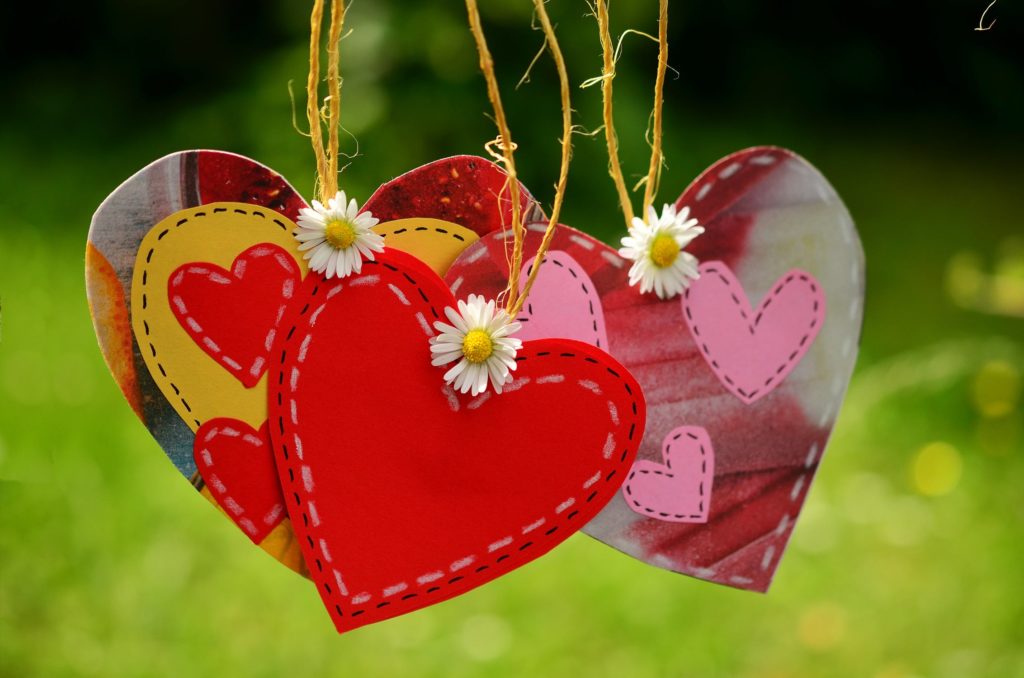
When we make love, a man penetrates a woman and he enters the sacred, loving, intimate sexual union. We can’t deny that it’s sacred. It’s not all heat and hormones. In entering a woman in that way, a man enters a deeper part of himself that he wouldn’t be able to access otherwise, a deeper, sacred part of himself. I’ve always had the feeling that sex was a way that we were given to be able to connect with God. I could never quite articulate why, but now I’m beginning to understand it because sex is a sacred part of ourselves. We enter that sacred state and so we’re able to connect with our sacred self.
We’re not just a personality, an ego, emotions or thoughts, we’re a spirit, and we’re a soul. When we fall in love with someone. We don’t fall in love with the head or the heart, we fall in love at the level of a soul. Even if a person misbehaves or treats us badly, we don’t stop loving them. We might make a choice to have a different kind of relationship or not be a part of them, but the soul connection lives on. That tells us there’s something more going on. That’s part of the mystery of God of the sacred.
There is a Sufi teaching about the life cycle between the thymus or the heart center and the womb. Our centers are portals. In the spiritual realm, we can travel through our heart center. We can travel through our womb center. These are portals between the worlds of unity, of unconditional, of the preexistent into the world of this multiplicity, duality contrast. As a spirit being, we can access that world of unity and unconditional love through the heart, we can access it through the womb.
When two people do come together in a sacred way in love, as you said, when a man enters a woman, there is that connection when we merge where we do enter the sacred. We come into communion with that sacred connection with that all that is and that connection with that eternal oneness, that preexistent of life force that breathes us into existence that breathes our consciousness into this physical realm.
We do, in the sacred way, get to travel back to that place of connection and that knowing of our oneness of source. It is an incredible opportunity for a man and a woman to come together in a sacred and loving way to know the source. When those boundaries are not respected and that sacredness is not respected and there is an invasion, a breaking there, a hurting there. Maybe at some level, in a twisted way, when there is actual non-consent, there is in some way recognition of a sacred connection at a very twisted way of going about it.
It’s trying to seek it through power, seek it through control, and seek it through violence and through taking. When you come together in a way where it is known, understood or at least sought at a high level and respected, it’s a different and exquisite experience. We need to be teaching more about that level of the incredible power of the sacredness when we respect it and what’s available. Lisa, for someone in our audience who is struggling in silence at any point on their healing journey, what would you say for them?
I’d say break the silence. Whatever happened did not change that sacredness within you. You are still the being, the fullness, the wholeness of that being that you were before that happened. There’s a journey of healing ahead of you when you are ready for it, to reconnect, to rebuild the bridges back to that sacred self. Break the silence. Find someone you trust that you can talk to because talking about it is the first step in that healing journey.
A lot of us, it’s tricky to find that person who we feel we can trust. Many of us we wanted to or maybe we’ve tried and then there’s that pushback or that question or that, “Are you sure? Are you crazy?” that doubt. We have enough doubt of ourselves, as it is, when something like that has happened, and we’re trying to take that step out of the box. It can be scary. That’s why I want to bring you people here who offer resources that you can reach out to, to ask for help.
People who have been there, who have experienced, who have walked that journey, who have broken through that wall of silence, done their own healing work and now have something to offer for you. If this would be you that are wanting to take that step for yourself. Lisa, you are one of those people that I would recommend and that I think highly of. Can you tell people how they can find more information about you and about what you offer?
[Tweet “Break the silence. Talking about it is the first step in that healing journey.”]I want to say too that it’s a beautiful thing to see people taking their power back from what happened to them into themselves and their sacredness. It’s absolutely astonishing, inspiring, I can’t find enough words. It prickles my skin to see that happening and to feel that I can be a part of that. You can contact me on my website www.ACVHealing.com.au and you’ll find information there about booking Skype for online consultations. We can manage the time difference between the States and Australia. You’ll find there more about our healing courses including my new course that’s come about as a result of this series called Healing the Spiritual Foundations of Abuse.
Abuse is a continuum, it can be something as subtle as ignoring someone’s needs repeatedly or not listening to them through belittling, demeaning, inappropriate touch or making inappropriate jokes right through to physical or emotional violence and rape. Abuse happens at many levels and the deeper and the more violent the abuse, the deeper we push it down, the more there is to heal. There are common themes to healing abuse at whatever level it happens and that’s what this particular course is aiming for.
Thank you so much. Lisa has designed this course specifically from all of those tools in her toolbox. All of those tools that she has been using for many years along with her own journey. She’s got much to offer and she’s designed this course specifically to help people in our audience who have dealt with any form of violation or abuse. Please take a look at her website. If you are attracted, reach out to her about her course or reach out with her and have a conversation.
You can join us in the Facebook group to continue this conversation and ask any questions that you have. That Facebook group is While We Were Silent. We thank you so much for being a part of this series. For whatever you choose for yourself, any steps that you choose to take or not, wherever you are, wherever you’re at, you are loved, you are honored, you are respected and you are appreciated. Thank you so much for being you.
About Lisa Hare
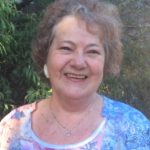 Lisa Hare lives in Melbourne, Australia and is a psychologist, kinesiologist, energy healing practitioner, trainer and author with over 25 years’ experience helping others overcome life challenges of many kinds.
Lisa Hare lives in Melbourne, Australia and is a psychologist, kinesiologist, energy healing practitioner, trainer and author with over 25 years’ experience helping others overcome life challenges of many kinds.
Her work as a therapist focuses primarily on relationship issues, life skills and resolving stress, anxiety and depression, drawing mostly on kinesiology, counselling and transpersonal psychology, somatic therapies and spiritual healing techniques.
Having a passionate interest in teaching the techniques that supported her own growth, Lisa has created a number of training courses that support others in their journeys of healing and transformation. She teaches Kinesiology and Chiron Healing® courses in Australia, Taiwan and Singapore.
Lisa is a keen traveler, which has given her valuable insights into many other cultures, including Western Europe, Greece, Turkey, Malaysia, Taiwan, Egypt, Peru, India and the USA.
Important Links:
- While We Were Silent
- Lisa Hare
- www.ACVHealing.com.au
- While We Were Silent – Facebook
- Journey to Freedom
- David Deida
- http://WhileWeWereSilent.com
- https://www.Facebook.com/groups/WhileWeWereSilent/
- https://ACVHealing.com.au/Spiritual-Foundations
- https://ACVHealing.com.au/
